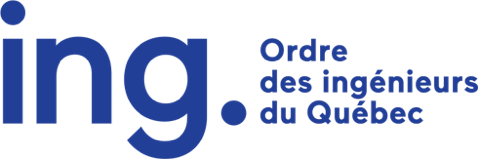Did you know that engineers must continue to learn throughout their careers? This is one of the control mechanisms put in place by the OIQ to protect the public.
Continuing education refers to all activities intended to update or develop the skills of our members. In short, continuing education allows engineers to maintain and enrich their professional practice.
In Quebec, with some exceptions, engineers must participate in a minimum of 30 hours of continuing education over a period of two years, for the duration of their careers. This meets the requirements set out in the Règlement sur la formation continue obligatoire des ingénieur.
Eligible activities cover all aspects of the engineering practice. They can range from technical issues to law, management, ethics, and communications.
The development of knowledge on an ongoing basis contributes to the maintenance and development of skills, especially when it is accompanied by experience and mutual support. This is why the OIQ places such importance on continuing education. Engineers who fail to meet this requirement may have their right to practice limited and they can even be struck from the roll.
The OIQ’s directory of members lists engineers who have met their continuing education requirements. With a quick search in our directory, you can verify the legitimacy of a person who practices the profession.
More than ever, the OIQ is working to protect the public. Its key word? Trust. Through the educational programs that its members follow, the OIQ encourages the development of ethics, skills, responsibility and social commitment.
Its ultimate goals? To have clear and transparent practices that you can trust and allow you to have confidence in the excellence of the profession.
Visit our Continuing Education page to learn about your obligations and develop your skills!

